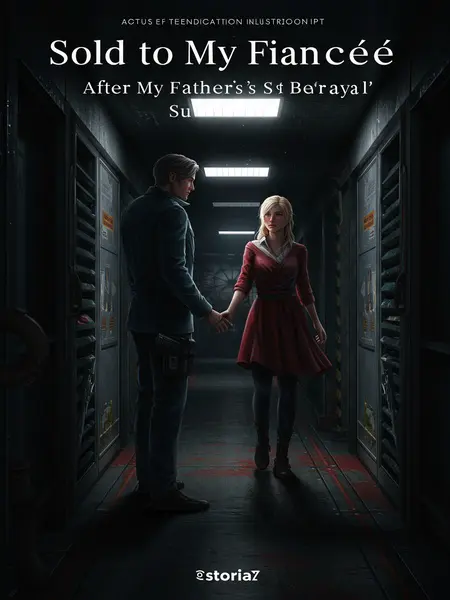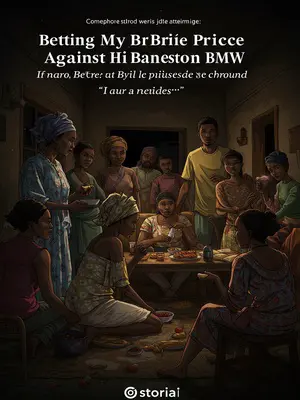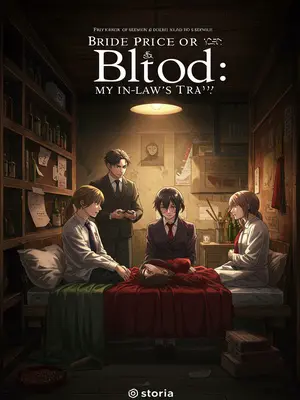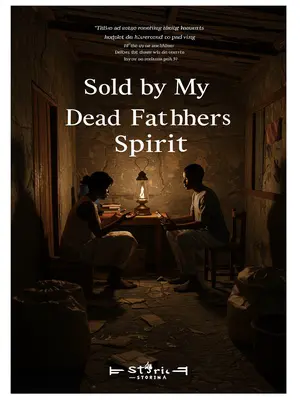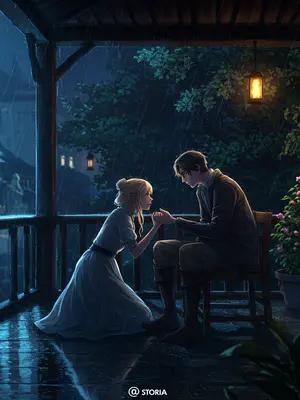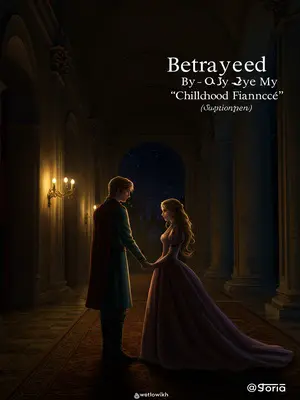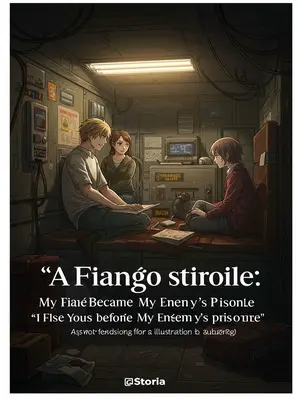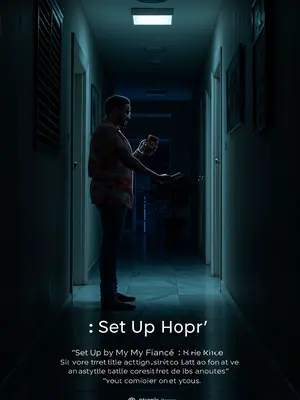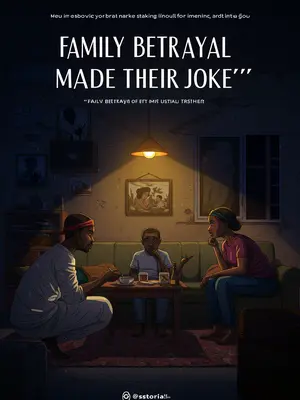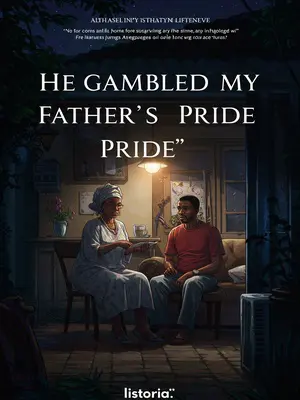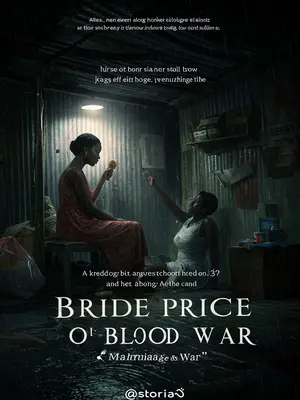Chapter 2: Shadows and Salutes
All nine women from Nwosu family dey inside chief’s cell, dey wait for council of elders judgement.
Inside that dark room, floor cold, the air thick with the smell of old sweat and fear, we dey press body together. The scent of damp earth climb my nose, and the scratch of raffia mat dey bite my skin. Na so we dey count our fate, one after the other, just dey wait as if the wall fit open give us answer. Somebody dey mutter prayer under breath, another dey tap foot for ground, small pikin dey suck finger. Far, I hear distant goats dey bleat, sound mixing with our worry. For our place, when women dey together for darkness, na then true story dey flow for heart.
But last last, na either to sell us or carry us go Women’s Quarters for Chief’s palace.
Everybody sabi as e dey go. Some dey hope say dem go sell us go farm, say we fit get better chance there. Some dey fear say Women’s Quarters na where them dey waste young girls—where dignity dey lost and pride dey finish. My own mind dey inside my chest dey pound. I dey pray inside, "Chineke, just hold our hand."
“Amarachi,” my mama call me, “Wetin be the time?”
Her voice weak like breeze. The sickness don dry her throat. I fit hear the tiredness inside, but she still try. For this life, mama na mama, even if world dey collapse.
My mama don dey sick since dem lock us three days ago.
From the first day we enter this cell, she just dey cough, her body hot, her voice low. I fit feel the fear inside her bones. For my side, I dey try hide my own worry, so she go see hope for my face.
I look outside small hole for wall, see small sky, whisper, “E don reach afternoon.”
The hole small, but na only window wey we get. The sun dey climb high, but for here, na only that line of light dey tell us say time dey move. My voice low, I no wan make others fear.
“Afternoon…” My mama hold my hand tight, just dey repeat am.
Her palm cold, fingers shake. She dey squeeze my hand as if she fit hold my whole life inside. She dey look my face, tears for her eye, but she dey try smile. That "afternoon" na like bell for her ear—a sign say judgement dey come.
Afternoon na the time Nwosu family fall.
For our history, that time na our end. For other people, afternoon na time to chop, but for us, na time to lose everything. E pain me say na my family story be this.
My papa go soon lose him head.
For this land, when dem say "head go roll," no be just talk. Everybody dey wait, heart dey beat, because once head fall, spirit fit waka for night.
The men for Nwosu family, dem go exile dem go far north.
I dey picture my brothers—strong boys, now dem go dey walk bush road, dust cover leg, no hope for tomorrow. The north far, cold, strange. Dem go miss home, the smell of mama soup.
My mama begin cry, my aunties and cousins join her dey cry.
The tears dey flow like river. Old women dey sob, young girls dey shiver. Me, I just hold everybody, dey rub back, dey pray the ground make e open swallow our pain.
Aunty Ifeoma beg me, “Amarachi, abeg go beg Tunde. Make he help you and your sisters, na enough—he fit do am.”
Her voice crack, her hand dey shake. She dey press my shoulder, her face full of hope and shame. I feel the weight of her request—she dey push her own hope put for my hand. For our place, na first daughter dey carry family burden.
Tunde na my fiancé. Four years ago, na just youth corper he be. My papa like am, come give me to am.
I remember those days—Tunde dey come our house, him shoe dey always clean, him Yoruba accent sweet for ear. My papa say, "Na man wey get future." I dey shy that time, I dey think say life go sweet for two of us.
His work just dey move well, promotion upon promotion, the chief’s son trust am.
From small corper to council favorite, Tunde climb fast. People dey hail am, say, "See how person dey sharp!" Chief’s son even dey call am brother. E no take long, e begin dey dress like big man, e dey speak for meetings, everybody dey respect am.
But now, na him still destroy Nwosu family.
Irony na true pepper. The hand wey suppose hold me, na that same hand push my family fall. People for village dey talk, "Na who dey close to you go wound you pass."
I wipe Aunty Ifeoma tears. “He no go help us.”
As I wipe her face, I dey shake. My voice steady, but my inside dey scatter. I know Tunde—he don cross line wey no get road come back.
Aunty fall for my body, dey cry. My cousins surround me, dey call, “Sister.”
Their small hands dey my body, dey hold tight. My chest dey rise and fall. My strength na for them, I gats strong.
I look the light wey dey come from the hole.
The light thin, e no reach ground. I dey imagine say that light na hope, but e too far. For this country, hope dey always high, hard to touch.
Too high, like say e no real—person no fit touch am.
Some days, I dey wonder if that light no be trick. E dey shine, but e dey show all our suffering. Na so Nigeria be sometimes—plenty light, but no reach everywhere.
Heavy footsteps dey come from back. I turn, think say na palace messenger wan announce verdict, but na Tunde show.
The sound strong, as if ground dey shake. When I see Tunde shadow for wall, my heart skip. E resemble the old Tunde, but na different man stand before us now.
He wear deep red agbada, cap, head up, chest out, only small wooden rail separate us. Our eyes jam.
The agbada fine—better material, gold embroidery shine for edge. Tunde adjust him fila, greeting elders with small bow, "eku le o." E come with power, him face set like stone. My heart bite my chest, but I keep my face blank. This na the man I for marry—now stranger.
That moment, I remember the first time I meet Tunde.
E stand for compound, dey sweat, dey hold file. Him voice soft, "Tunde greet madam." I laugh that day, my papa clap for him back. Life sweet then.
He wear old brown shirt, come bow, “Tunde greet madam.”
I remember as I dey look am, say, "Na this one go become our in-law." Him bow deep, respect full body. Time change people.
Now, na big man he be, I na prisoner for him front.
Roles don switch. The world dey spin like fufu for mortar. I steady myself, no let my tears show.
Aunty Ifeoma beg am again to help us four sisters. She say if dem wan kill her, no wahala, but we wey dem raise for comfort, how we go survive for Women’s Quarters?
Her words dey cut. She dey think of us as children, the ones wey never fetch water for river before. Women’s Quarters na place of loss. Aunty voice dey beg, even her pride bend. For this land, women go beg, even if na man wey betray dem.
Tunde just dey look me, quiet.
E no blink. E just dey look me, as if e dey weigh my spirit. I fit feel cold dey enter my body. Others dey look am, dey hope.
He suddenly ask, “Why madam no wan beg?”
E no call my name—"madam," as if I be stranger. The words dey float, heavy, for the cell. All eyes turn my side. Even the small pikin stop to suck finger.
Everywhere quiet. My aunty just dey look me with hope.
You fit cut the silence with cutlass. Aunty Ifeoma eye dey red, she dey bite lip, dey wait. For our family, respect dey pass anything.
I know wetin Aunty Ifeoma mean, I understand wetin Tunde dey find.
I remember old stories—how women go kneel for market square, beg chief for mercy. Sometimes, shame no dey kill, but pride fit kill person. I gats make choice for all of us.
I kneel down for Tunde.
My knees shake as I lower myself, hands trembling, throat dry. My wrapper shift, but I no care. I bow head well, my forehead nearly touch ground. For this land, that na the sign of true pleading.
“I dey beg Oga Tunde, abeg help us sisters.” I bow well, “If you fit help, Amarachi ready to repay you for this life, even if na goat or cow.”
I dey humble myself finish. Goat or cow na big thing, but na sign say I ready do anything. My voice low, but the pain dey heavy inside.
Three steps apart, wooden rail dey between, Tunde begin laugh small, like say e sweet am.
E be like say the power sweet am for mouth. E laugh, but the sound dey sharp, e dey pain me. Some men dey like to see women kneel for them.
He squat small, dey tease, “All four sisters go be my wives—madam go gree?”
E want test me, see if I go break. The thing dey funny am. My head still low, but my mind dey spin. For Naija, men dey talk like this when dem feel say nothing fit touch dem.
I pause small, still kneel down.
I steady my breath, try remember my mama advice—"If you wan beg, beg well. No use pride." But my pride dey stubborn.
I reply, “Oga get style and sense. To be your wife na blessing for us sisters.”
I dey play along. If na blessing, na so. I no fit give am any room to mock me again. My voice dey soft, I dey squeeze my palm.
He laugh again. “I no know say madam sabi bend and stretch like this.”
The laugh dey sharp. I bow head more, try hide the fire wey dey burn my face. This kind disgrace na only for person wey don lose everything.
I bow my head, no answer am.
E wan make I talk more, but I hold my mouth. Sometimes, silence dey win war.
“But na your blessing, but my wahala.” Tunde stand up, wave him sleeve, him voice cold.
E stand tall, him agbada shake. As e wave, e fit see the pride and anger wey dey inside. For this life, some men like to hold pain for another person hand.
“Madam, I go come Women’s Quarters come see you.”
The words hang for air. E dey talk am like threat, not promise. The women behind me dey shake.
Tunde finish, laugh loud, waka go.
The laugh echo for corridor, dey bounce for the mud wall. As e dey go, e no look back. Only pride and small satisfaction for him step.
I sit up, just dey look as he dey go.
I dey shake small. Shame dey choke me. But I wipe my face, hold my sisters. For this land, dignity na small cloth—if e tear, you still gats wear am go outside.
“Amarachi.” Aunty Ifeoma hug me, dey apologize, “I no try. I no suppose let you beg that wicked man.”
Her tears dey soak my shoulder. I rub her back, tell her say no wahala. Sometimes, family gats push you enter fire so that you fit survive. I dey whisper, "Na nothing, aunty. Na nothing."
I console her, then turn look the cell wey dey near us, where one man dey hang by collarbone.
The man still dey there, quiet like spirit. I dey wonder if he dey hear us, if him mind dey far. Some kind pain fit make person turn ghost before time.
Him hair scatter, face cover, just dey sit for corner, cross leg, no move for three days.
He no shake, no talk. I dey wonder if na pride or na surrender. Chain dey ground like snake, dust dey for him back.
I think say e don die, but just now, I hear the iron chain for him collarbone move.
The small jingle shock me. My eye sharp, I dey try see if e dey breathe. The life inside prison dey turn person eye to eagle.
He still dey alive.
I breathe out, small relief for my heart. For this country, even hope dey stubborn—e no dey die quick.
